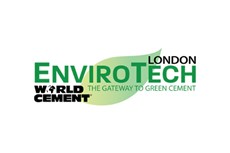Pakistan’s cement industry has excellent FY13
Published by Katherine Guenioui,
Editor
World Cement,
In Pakistan, cement producers have achieved significant profit growth at the close of FY13. Collective profit after tax is put at Rs.30.9 billion, representing a 93% increase over FY12 results.
Improved cement prices and lower coal costs, together with a reduced interest rate environment, resulted in a strong year for the cement industry. According to reports, Lucky Cement posted bottom line growth of 43% for the year, while DG Khan Cement came in at 34% growth. Maple Leaf Cement reported profits of Rs.3.23 billion for FY13, up 550% y/y – an exceptional result for the company. Total cement sales across the industry reached Rs.151.2 billion, up Rs.20 billion from FY12. Domestic sales rose by 5%, while exports declined by 2%. With the improved scenario in the domestic market, gross margins improved to 37% from 30% last year.
Cement prices have increased by 10%, from Rs.310 per bag in FY12 to Rs.343 this fiscal. Coal prices are down 20%, which has had a huge impact on operating costs for the cement industry.
These results come at a time of some turmoil for Pakistan’s cement industry, which has had a falling out recently over energy price hikes. Those companies without captive power plants are suffering the considerable rise in grid-power prices, leaving them disgruntled. The increase in gas prices was less severe, putting those with captive power plants in a better position. There has been some concern over potential price wars, but knowing the damage this caused the industry in 2010 it is hoped there will be some other resolution.
Edited from various sources by Katherine Gu
Read the article online at: https://www.worldcement.com/asia-pacific-rim/30092013/fy13_good_year_for_pakistan_cement_industry_224/
You might also like
The World Cement Podcast
A podcast series for professionals in the cement industry featuring short, insightful interviews. Subscribe on your favourite podcast app to start listening today.


